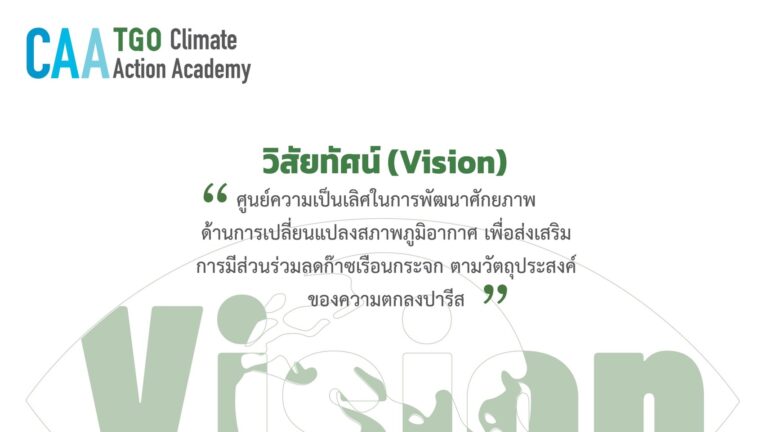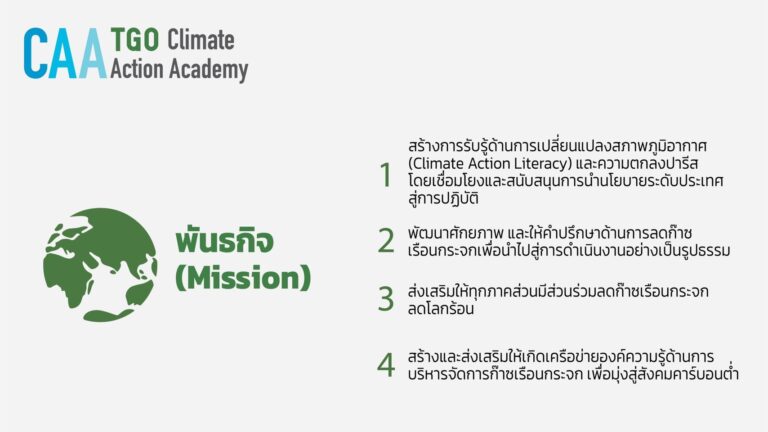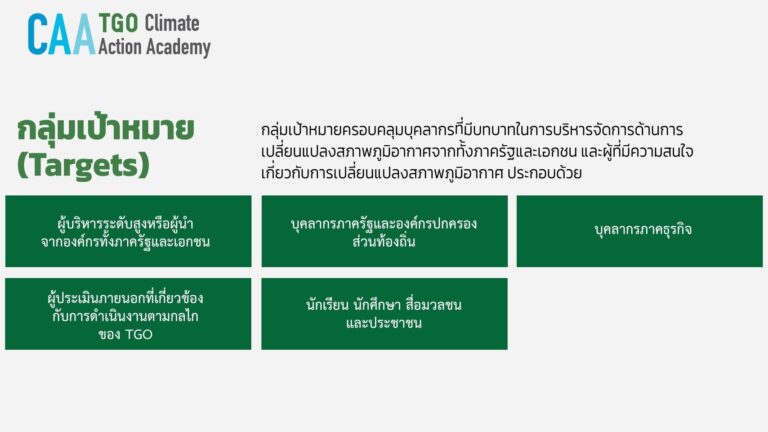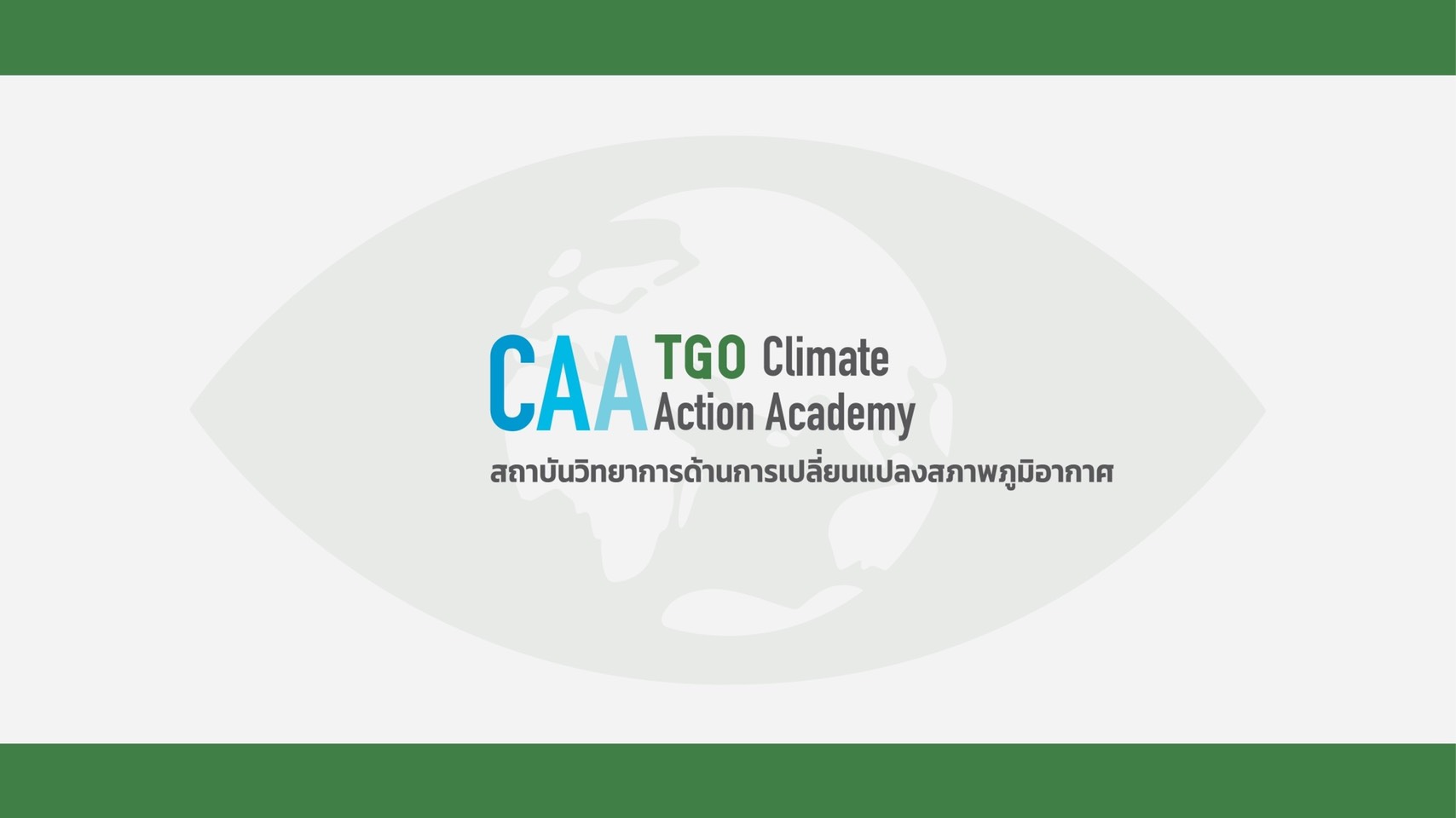Rational and Background
At the current situation, economic and social development need to be in cooperate with the preservation of natural resources and the environment because those development activities cause greenhouse gas emissions, leading to climate change problems affecting lives and property, as well as economic impacts in all sectors worldwide
Thailand is one of the Parties that ratified the Paris Agreement on 21 September 2016 and put forward its best efforts through the Nationally Determined Contribution (NDC)., which is an international treaty on climate change, adopted in under the United Nation Framework Convention on Climate Change (UNFCCC). It covers climate change mitigation, adaptation, and finance. The Agreement was negotiated by 196 parties at the 2015 United Nations Climate Change Conference in Paris, France to formulate international rules for more ambitious commitment from countries in addressing climate change. It aims to strengthen the response to global climate change threats in the context of sustainable development and poverty eradication efforts
The establishment of the Greenhouse Gas Management Organization (TGO) as a public organization was approved by resolution of the Thai Cabinet on May 15 (B.E. 2550, 2007). While this autonomous public organization has administrative autonomy, it also acts as the center for collaboration among government, private sector and international organizations.
In 2014, Thailand Greenhouse Gas Management Organization launched the Climate Change International Technical and Training Center or CITC with support from Japan International Cooperation Agency (JICA) to serve as a knowledge hub and training platform on climate change to fulfill the needs of ASEAN stakeholders on climate change implementation. As a result of the successful execution of the CITC, TGO decided to expand our capacity building activities and collaboration by integrating the CITC and other training and outreach programs into a newly established TGO Climate Action Academy (CAA) which focuses on enhancing competence on climate change issues both in Thailand and in the Southeast Asia region.
In addition to its work on distributing fundamental knowledge on climate change to society, CAA has also provided knowledge and knowhow on the model and process for assessing the success of carbon credit reductions at the project, organizational and local level. These were developed in many forms such as the Clean Development Mechanism (CDM), Thailand Voluntary Greenhouse Gas Reduction Program (TVER), Carbon Footprint Label/Carbon Footprint Reduction Label (CFP/CFR). and corporate carbon footprint (CFO/CCF), etc., as well as knowledge of various marketing mechanisms.
In addition, CAA also aims to develop capacity for personnel in climate change management in thecountry, especially senior executives and leaders from all sectors, to have knowledge and understanding of their role in promoting circular economy, in order to achieve maximum productivity, energy efficiency, minimum waste, and minimum supply chain greenhouse gas emissions, as well as promoting the consumption of products with low carbon emissions, creating a low carbon society as soon as possible that will allow all life in the world to continue to live well and sustainably.
Vision
” Center of Excellence for Climate Change Potential Development to Promote Paris Agreement’s Objective Contribution to Greenhouse Gas Reduction”

Missions
1. Raise awareness on climate change and the Paris Agreement by linking and supporting the implementation of national policies
2.Build capacity and giving advice on reducing greenhouse gases to lead to concrete climate actions
3. Encourage participation from all sectors in reducing greenhouse gas emissions and reducing global warming.
4. Build and promote a knowledge network on greenhouse gas management towards a low-carbon society.

Target Groups
The target group covers officials who play a role in climate change management in both the public, private sectors and people who are interested in climate change,
consisting of:
– Executives or senior leaders from both public and private organizations
– Government officials and local government organizations
– Business personnel
– External auditors who involved in the implementation of the TGO schemes, and,
-Students, scholars, mass medias and the general public



